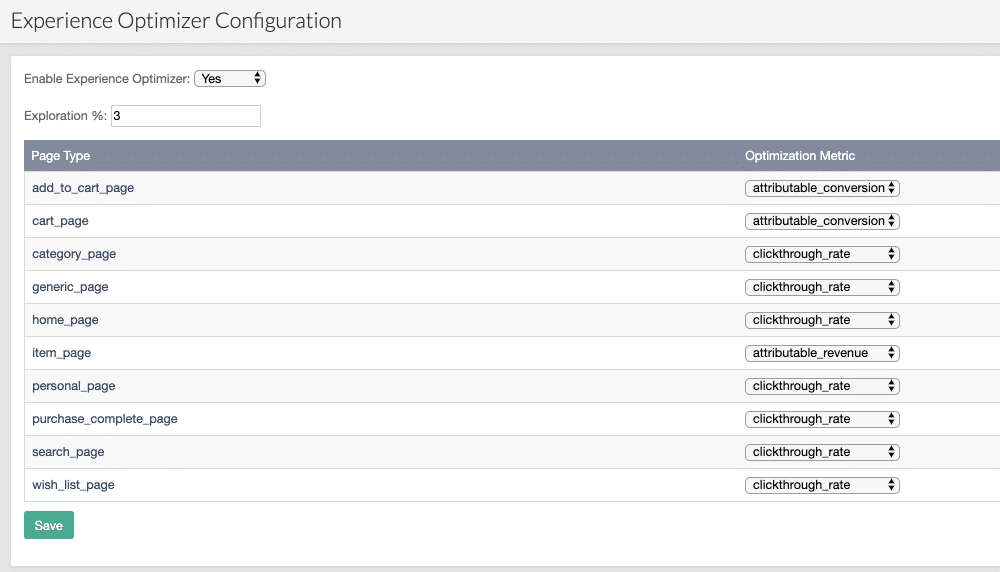Will AI Restrict Consumer Choice?
Personalization, at its core, is the idea that as a consumer, you are served exactly what you want, when you want it. AI is being deployed by retailers and brands who understand that this is a “big data” problem and when product catalogs become larger, machines start to perform as good as, if not better than, human merchandisers.
But does this quest for delivering “exactly” hurt consumer choice?
In a recent article, the author tries to argue this point (albeit long windedly,interspersed with long commercials by providers of AI services). Let’s break this down and address some of his key objections.
“As human actions become more predictable, the more consumers are fed with prediction-informed products versus new innovations. The use of machine learning potentially reduces choice and variety.”
Human actions are not becoming “more predictable” because of the use of “prediction” tools… that’s mixing correlation and causation. If anything, marketers are struggling to make sense of the brownian motion of a consumer’s “journey” as they bounce, disappear and reappear between devices, channels, sessions and more, Dr. Strange style.
Prediction-informed products rely on past behavior to construct AI models. For example, imagine if you are a bookseller.
When you look at sales behavior, you notice patterns of customers who gravitate to certain categories (like ‘Business’ or ‘Cooking’ or ‘Memoirs’ or ‘Business Memoirs’). Within these categories, there are some that sell out the fastest (“You haven’t yet read Bad Blood? What’s wrong with you!”), and some that are preferred by the others because they like the author.
As a bookseller, “choice” is very much a function of taste and state of mind. If the customer knows what they want, getting them to add it to their basket is a priority. If not, exposing them to the various choices that are available is the next thing to do. And if they really are exploring (as in, questioning the nature of reality and the meaning of it all, esp. when holding a cupcake that is lusciously inviting but savage in terms of calorific value… wait, is that TMI?), introduce them to other categories (“I have this great book under Philosophy and Metaphysics”).
At RichRelevance, we have thought about this challenge a lot over the last decade. Just like the bookseller, we have different “strategies” that our AI engine, Xen AI, uses to decide what to do next.
The first set is the “wisdom of crowd” strategies. This is the ability to leverage behavior of a majority of customers transacting on the digital property, and start to display what is “top selling”. There is no personalization expected, just the fact’s ma’am, on what everyone is buying.
The next set lets you decide between key objective functions that you would like the AI to optimize for:
- Engagement (show more variety, optimize for discovery),
- Conversion (show more related for upsell/cross-sell, optimize for funnel movement),
- Replenishment (optimize for repurchase),
- Margins (optimize for bottomline) and
- Exploration (optimize for broader discovery).
Both Engagement and Exploration mode is precisely how retailers can stop worrying about restricting and “hurting” consumer choice.
The exploration mode can be explicitly configured for your business at every stage in the funnel, as you can see below. In this case, we are stating to the Experience Optimizer (the heart of the decisioning in Xen AI) to use 3% of the traffic for exploration, and for the home page, optimize for CTR, whereas, for the ATC page, to optimize for attributable conversion.

The final set is the latest enhancement to Xen AI – using deep learning/reinforcement techniques such as NLP (Natural Language Processing) – that skips using traditional historical behavior altogether for predictions. Instead, NLP for Recommend looks for hidden patterns between all the products in the catalog, and compares that with the real-time intent of the shopper to surface the right products. This solves an entirely new class of problems, such as “How do you ensure that new products that just arrived are being shown, without having to wait for behavior-based models to catch up” and also for long-tail items – items that have been sitting in some dusty corner of your warehouse, but are just the perfect match for this particular discerning Indiana Jones of a shopper.
As Brandon Purcell, Forrester states:
“This approach uses both classic machine learning as well as reinforcement learning which is a relatively new approach that will ultimately become ubiquitous,” he says, referring to an emerging form of machine learning that trains algorithms by rewarding or punishing them for desired and undesired outputs.”
To summarize, its clear to us that AI is a tool that, when deployed the correct way, can truly help an organization deliver a personal experience in any digital format. Consumers of today don’t want to go back to the 20th century where there were seemingly tons of choices, but also an abundance of time to make those choices. Today, the demographics have changed, devices have changed, and so have expectations – everyone wants to, and deserves to – be treated as an individual. And as the article quotes:
“Since AI learns from people’s behavior, product homogenization won’t happen unless human homogenization does first.”
Learn more about how RichRelevance can help your business.


